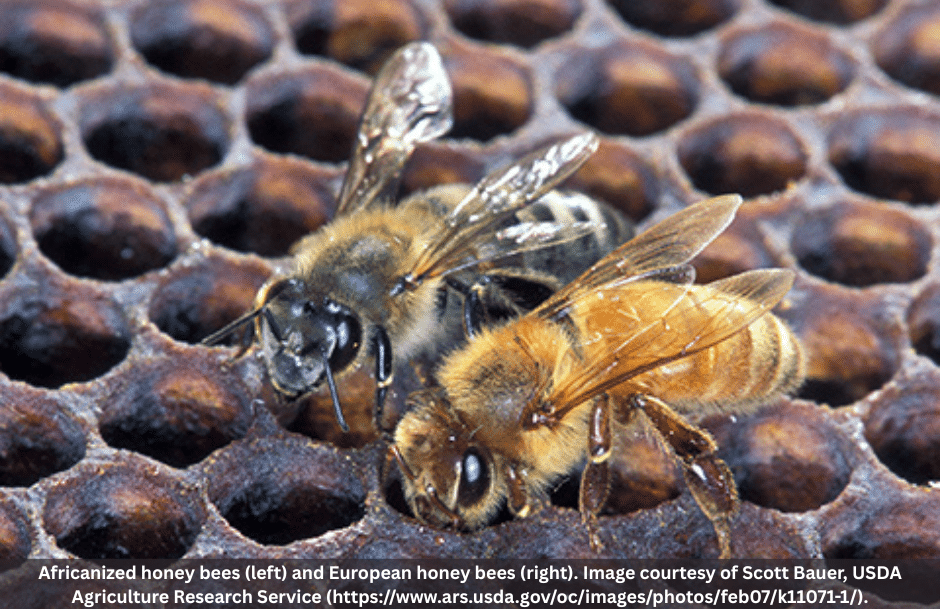From the Department of Alabama
of Industries and Agriculture
Montgomery, Alabama. After local beekeepers collected a feral swarm, the Alabama Department of Agriculture and Industries (ADAI) determined that Africanized Honeybees (AHB) are present in Barbour County. To save Alabama’s honeybee numbers, the swarm was humanely put down.
ADAI is conducting focused monitoring activities to determine and control the amount of AHB present in the region as a preventative measure. To find any more activity, traps are being set up within five miles of the detection site. The Department’s continued commitment to protecting pollinators and assisting regional beekeepers is reflected in these initiatives.
According to Commissioner of Agriculture & Industries Rick Pate, there is now no cause for public alarm, but we are taking this matter seriously. In order to guarantee prompt discovery and suitable action, our staff is actively working with regional beekeepers and entomology specialists. Our primary goal is to safeguard Alabama’s honeybee populations and the well-being of our communities.
Beekeepers in the area are being called and given instructions on how to identify and handle Africanized honeybees. In order to facilitate comprehensive surveillance and risk assessment, ADAI will also be gathering samples as required.
Africanized Honeybees: What Are They?
A cross between African and European honeybees is known as an Africanized honeybee. Despite having many morphological traits in common with European honeybees, they can act more defensively, especially when defending their hive. It is crucial to remember that honeybees, whether European or Africanized, are not dangerous until provoked.
Important Distinctions Between European and Africanized Honeybees:
When disturbed, AHBs may react more frequently because they are more defensive.
Utility boxes, waste piles, and underground caverns are just a few of the places where AHBs may nest and swarm more regularly.
In certain situations, AHBs may chase imagined threats up to a mile farther than European honeybees.
Suggestions for the General Public:
Never try to remove or disturb any bee swarms or colonies.
Any exceptionally hostile bee behavior should be reported right away to ADAI.
It is important for beekeepers to stay alert and report any suspected AHB presence or changes in colony behavior.
Please call the State Apiary Protection Unit of ADAI at (334) 240-7228 or (334) 240-7172 if you think you may have come across a colony of Africanized honeybees or if you would like additional information.
See https://agi.alabama.gov/plantprotection/apiary-protection-unit/ for further details.












